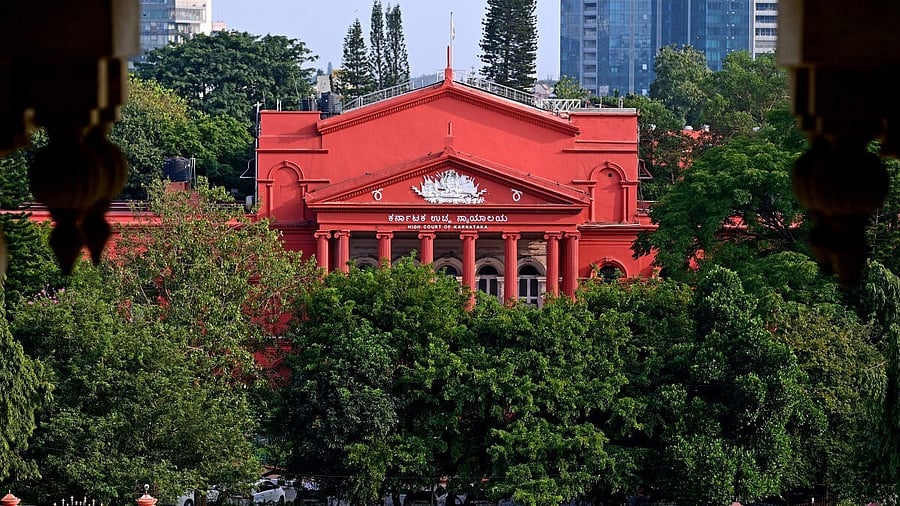
Karnataka High Court
Credit: DH Photo
Bengaluru: The High Court of Karnataka has issued guidelines for prison authorities to follow while granting and effectuating parole release orders.
Justice Sachin Shankar Magadum directed the prison authorities to sensitise the convicts to the legal consequences and the severe penal consequences that would follow in case of non-compliance of parole conditions.
The court issued the guidelines after noticing that in several cases, convicts released on parole often remain unaware of the stringent consequences for failing to surrender within the prescribed time and that such ignorance frequently results in further criminal prosecution.
Mandatory briefing
“At the time of release on parole, the jail superintendent or the designated parole officer shall mandatorily brief every convict, in a language understood by the convict, regarding the conditions of release and the specific consequence of failure to surrender within the stipulated period, including the punishment prescribed under Section 58 of the Karnataka Prisons Amendment Act. A written undertaking shall be obtained from the convict acknowledging that he or she has understood the conditions of parole and the legal consequences of any breach thereof. A copy of the parole order along with the extract of Section 58 of the Act shall be provided to the convict and countersigned by the releasing officer,” Justice Magadum said.
The court said that the Department of Prisons, in coordination with the Karnataka State Legal Services Authority has to prepare informative pamphlets or booklets in Kannada and English. These materials will summarise the rights, duties and liabilities of parolees, including the penal provisions for violating parole, and will be distributed to all prisons and made available to inmates and their families.
“The District Legal Services Authority shall ensure that every convict applying for parole is made aware of the conditions and potential consequences through legal literacy sessions conducted within the prison premises at regular intervals,” the court said.
In the case at hand, the petitioner, a 47-year-old resident of Revoor, Bagalkot, was serving jail term in a Pocso case. She was granted 30-day parole on March 9, 2022, which was subsequently extended by 60 days. She was apprehended and brought back to custody after she failed to surrender as mandated.
She was convicted and sentenced to rigorous imprisonment for two years and fined fine Rs 1,000 under Section 58 of the Karnataka Prisons Amendment Act. Challenging this conviction, the petitioner contended that her failure to surrender due to serious health complications arising during Covid-19. However, the judge noted that the petitioner had not placed on record any credible or cogent material, either before the trial court or before the appellate court, to substantiate the contention about health grounds.
“No medical records, prescriptions, or any form of corroborative evidence were produced to establish that the petitioner was incapacitated or medically unfit to report back to the prison authorities on the due date,” the court said, dismissing the petition.
He added that the prosecution’s version that the petitioner deliberately failed to surrender upon expiry of the parole period stood firmly established.